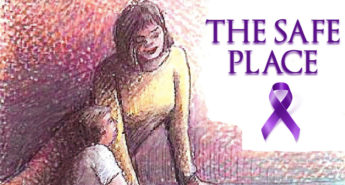 Masculinity exists on a spectrum, encompassing a broad range of behaviors, attitudes, and emotions. It’s not limited to traditional traits like strength and assertiveness but includes vulnerability, empathy, and a variety of characteristics that make each individual unique.
Masculinity exists on a spectrum, encompassing a broad range of behaviors, attitudes, and emotions. It’s not limited to traditional traits like strength and assertiveness but includes vulnerability, empathy, and a variety of characteristics that make each individual unique.
Societal Expectations and Stereotypes:
Societal expectations often impose rigid stereotypes on masculinity, influencing how individuals perceive themselves and how others view them. The stereotype being that to be a man you must be physically strong, and exude confidence and assertiveness. While these are not bad traits, they can be overdone to the detriment of others around you. Breaking free from these stereotypes is essential for allowing people to authentically express their identity without conforming to outdated societal norms, there is no one single way a man should be.
The Impact on Mental Health:
The pressure to conform to traditional notions of masculinity can have significant implications for mental health. Men may feel compelled to suppress emotions, leading to stress, anxiety, and a sense of isolation. Creating a space that values emotional expression is crucial for promoting mental well-being.
Challenging stigmas surrounding vulnerability is a crucial step in fostering a healthier understanding of masculinity. Acknowledging and addressing mental health challenges openly contributes to breaking down barriers and reducing the stigma associated with seeking support.
Positive Masculinity:
Positive masculinity involves embracing qualities that contribute to personal and societal well-being. This includes empathy, compassion, effective communication, and the ability to collaborate. Recognizing and celebrating these attributes is essential for creating a balanced and inclusive perspective on masculinity.
Promoting positive masculinity involves role modeling these qualities. By showcasing diverse expressions of masculinity in various roles and settings, individuals, especially children, can see that being a man is not confined to a narrow set of characteristics.
Your Role as a Child Advocate:
At The Safe Place, fostering an inclusive environment is paramount. Encouraging people to express themselves authentically, without the constraints of societal expectations, contributes to their overall well-being and helps build a foundation for healthy relationships.
Education and Awareness:
Educating the community about the diverse nature of masculinity and raising awareness about the impact of stereotypes on children’s development is an essential aspect of our role. By fostering understanding, we contribute to breaking the cycle of harmful stereotypes and promoting a more inclusive society.
In conclusion, navigating masculinity involves embracing its diverse nature, challenging stereotypes, promoting positive qualities, and creating environments that support authentic self-expression. By doing so, we contribute to building a society that values individuals for who they are, fostering a healthier and more inclusive community.




Leave a Reply